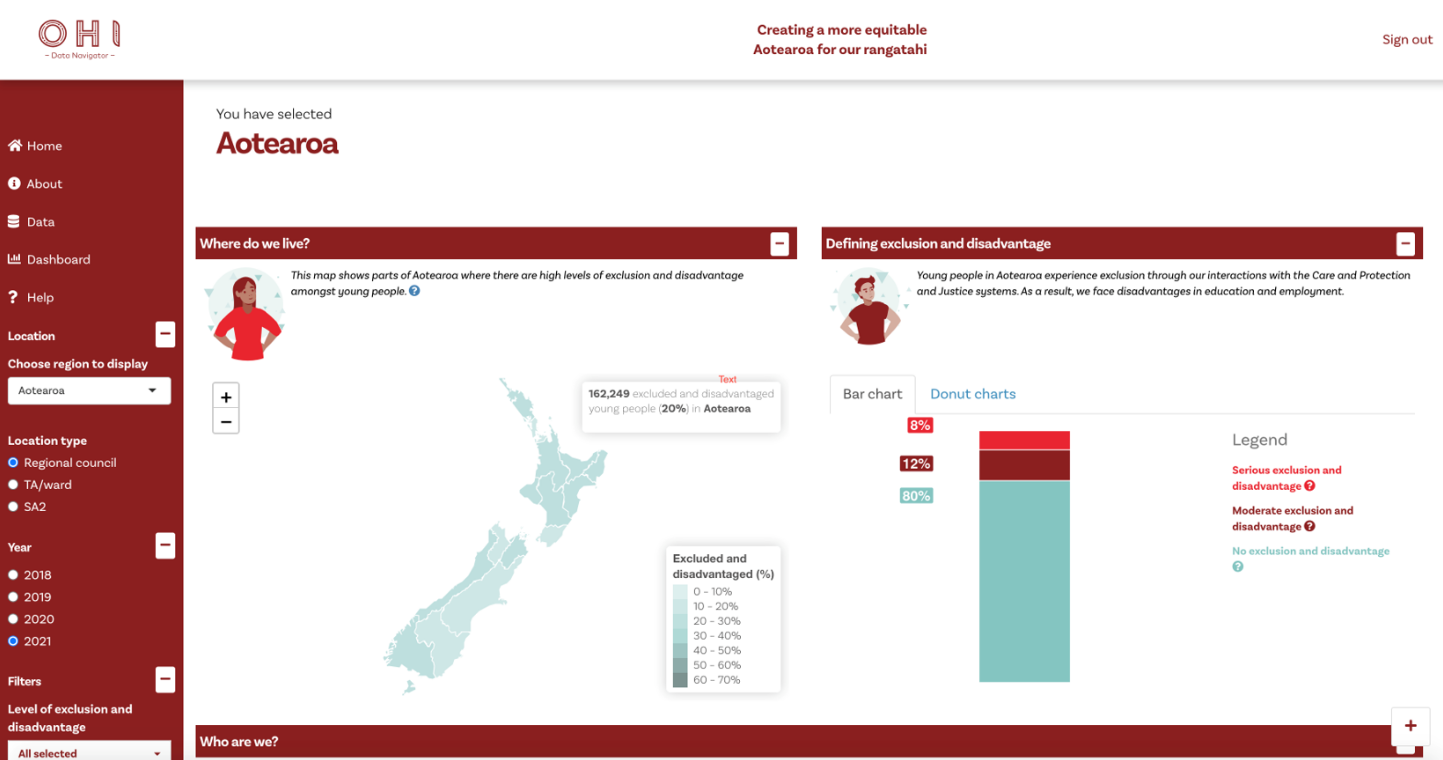Data Science 101: What is Data Science?
At its core, data science is about working with data to create knowledge or find solutions to problems. Data science can forecast trends, improve the efficiency of systems, inform business decisions, and help us understand trends across populations.
The explosion of information technology over the last few decades means that there’s more data available than ever before. Data is collected on many things, from how people engage with products and services to the health and wellbeing of our society. This abundance of data has created some incredible opportunities to deepen our understanding of almost any area, and improve the quality and efficiency of the products, services, and systems we use.
Industries across the world use data to inform decision making. Almost all industries are informed by data informed decision making – where data exists, data scientists are needed to provide actionable insights for organisations.
However, much of this data exists in forms that are messy, unstructured or complex. To properly utilise data, we need people that know how to find, interpret, and manage it. Data scientists have the tools and capability to make sense of data and extract valuable insights that can support meaningful and effective decision-making. To do this, data scientists use a variety of tools and methods including statistical analysis and modelling, automation/machine learning, and data visualisation.
Data science has applications across an array of domains including business, healthcare, government, and the environment. Many of the products, services and systems we engage with on a regular basis rely on data science to operate.
Some examples of data science in action include:
Recommendation algorithms
The recommendation algorithms that sit behind apps like Netflix and TikTok are powered by data. These algorithms rely on user data to prioritise content, and match users with the content they are most likely to engage with and enjoy.
Dashboards & Data Visualisation
Dashboards are how we monitor, analyse and display data relevant to a specific area of interest. Dashboards will generally include the status of key metrics and supporting graphs to visualise trends over time.
For an example, check out the OHI Data Navigator which is a dashboard we created in collaboration with One Aotearoa Foundation that enables communities to access valuable data about the experiences and wellbeing of rangatahi in their communities.
Forecasting
Forecasting is a statistical modelling method to predict future occurrences or events, using historical and present data.
A common example is weather forecasting, which helps to predict the future weather conditions, including natural disasters such as severe winds or flooding. We have also used forecasting in projects of ours such as He Ara Poutama. For He Ara Poutama, we built a microsimulation model to forecast how different policies will influence the number of te reo Māori speakers in Aotearoa in the future.
Cancer early detection
In recent years, researchers have looked at using machine learning to help diagnose diseases such as skin cancers. These models are fed thousands of images which train them how to identify lesions that may potentially be cancerous. Automating this process improves the rates of early detection and can significantly improve the patient’s prognosis. Check out this story for more!
What skills do data scientists have?
Data science is a broad and multidisciplinary field, and as a result data scientists will often wear many hats. Data scientists’ roles can include everything from defining business requirements, building machine learning models, and presenting insights. Subsequently, data scientists possess a wide and varied skillset that includes.
Data scientists may also possess specific subject matter expertise. For example, a data scientist working with financial data may have a background in finance that helps them interpret the data they are working with.
There are several pathways available to those who want to pursue a career in data science. While numerous universities offer courses that allow students to major in data science, professional data scientists come from a wide range of professional and educational backgrounds. Here at Nicholson Consulting, we have data scientists from a range of backgrounds including health, geospatial science, and government.
While the explosion of data has opened the door to all sorts of technological possibilities and knowledge, it has also raised many questions around how to work with data in a safe and ethical way. It's important to think critically about how to work with data and develop best practices that support the wellbeing of people and the planet.
At Nicholson Consulting we take a people-centred approach to data science
We believe that data is more than just numbers – it holds rich context about people’s lives and experiences.
That's why we strive to work with data in ways that are ethical, mana-enhancing, and uplifting for communities. The majority of our clients are government or community organisations that are working on tackling complex challenges that face Aotearoa. Lots of our mahi involves working with Māori data, and our Māori data kaimahi are incredibly skilled at applying Māori Data Sovereignty principles to projects. (If you would like to learn more about Māori Data Sovereignty check out the Te Mana Raraunga website).
The field of data science holds so much potential! And in our data-driven world, we need talented and skilled people to be working with it in ways that are oriented towards having a positive impact.
Did this post pique your interest in the world of data science? Keen to chat more about what we do and how we can support your business or organisation to thrive and do good?
Get in touch by emailing hello@nicholsonconsulting.co.nz



